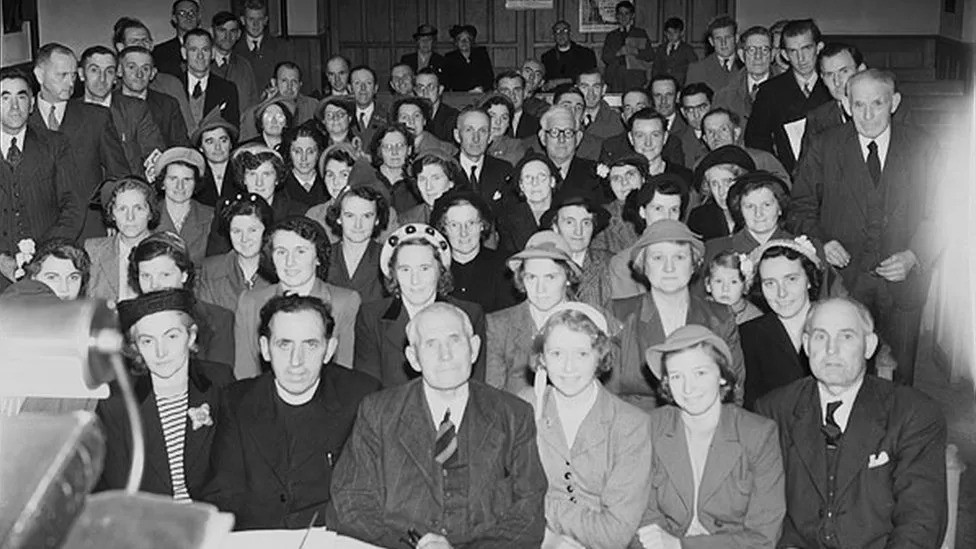Unknown 18th-century hymns discovered in Wales

The audience for the Welsh hymn-singing BBC radio series Caniadaeth y Cysegr at Soar Presbyterian Chapel in October 1953. (Geoff Charles/Llyfrgell Genedlaethol Cymru/National Library of Wales)
If you ever find yourself at a rugby game in Wales, don’t be surprised when the crowds begin to belt out Guide Me, O Thou Great Jehovah, known as Bread of Heaven to the Welsh. Called the “Land of Song,” hymns in Wales are not just for church services. They have played a prominent role in the life of the nation by preserving and transmitting its language and culture. Even as churches continue to close, formal and impromptu hymn sings remain.
Which is why the recent discovery of some unique 18th-century hymns is so significant.
Many of these newly discovered hymns are about addiction, mental illness, and “the dark side of the psyche,” said singer-composer Lleuwen Steffan, who discovered the trove of hymns. “You have one that talks of drunkenness and alcoholism that is transformed into drinking the wine from God’s cellar.”




